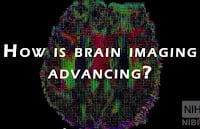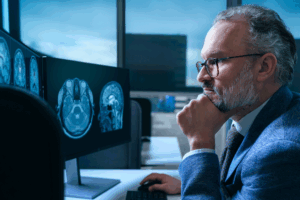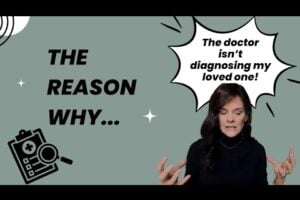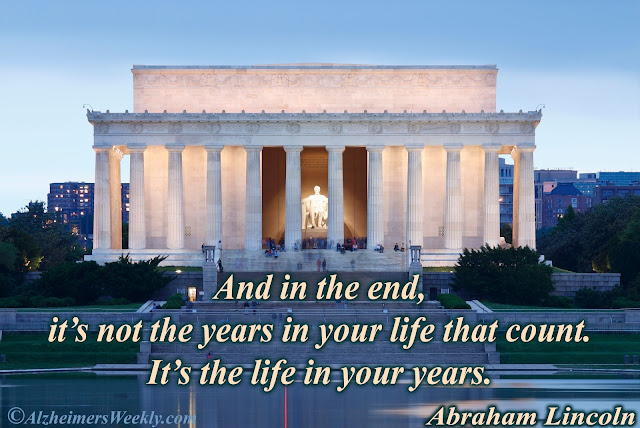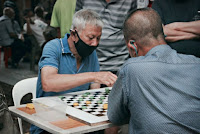VIDEO + ARTICLE:
Diagnostic technology is a powerful weapon in the fight against dementia. Find out how a new map of the ageing brain will help win that fight.
University of Edinburgh researchers constructed a detailed atlas of the human brain using MRI scans from more than 130 healthy people aged 60 or over.
The digital map of the ageing brain could aid the diagnosis of Alzheimer’s disease and other neurodegenerative disorders, a study suggests.
See related NIH technology in this video. The above article continues below the video…
The atlas could aid diagnosis by comparing patients’ MRI scans with a map of the healthy ageing brain.
Most existing MRI atlases are based on the brains of young and middle-aged people, which don’t reflect the normal changes that take place in the brain as we age, the team says.
Ageing brains
The team used their atlas to study brain scans taken of normal older subjects and those with Alzheimer’s disease.
The atlas was able to pinpoint changes in patients’ brain structure that can be an underlying sign of the condition, researchers say.
Disease signs
A key sign of early Alzheimer’s disease is the loss of brain tissue in a region of the brain, known as the medial temporal lobe.
These changes are often subtle and can be difficult to spot, but an MRI atlas could make it easier to detect them, researchers say.
The team is continuing to develop MRI atlases of the healthy brain across the lifespan as part of a project – Brain Imaging in Normal Subjects (BRAINS) – which aims to detect brain damage in other diseases such as schizophrenia and preterm birth.
Early diagnosis
For atlases to be useful and reliable, the team says brain imaging centres need to continue to collect scans from healthy older people and work together to make large brain image banks.
The ultimate aim is to use digital brain atlases to support earlier diagnoses of Alzheimer’s and other neurological diseases that develop at different stages of life, the team says.
The study, published in the journal PLOS ONE, was principally supported by the Scottish Funding Council, Scottish Imaging Network, A Platform for Scientific Excellence (SINAPSE), and the Medical Research Council.
Dr. David Alexander Dickie of the Brain Research Imaging Centre said,
"We’re absolutely delighted with these preliminary results and that our brain MRI atlases may be used to support earlier diagnoses of diseases such as Alzheimer’s. Earlier diagnoses are currently our strongest defense against these devastating diseases and, while our work is preliminary and ongoing, digital brain atlases are likely to be at the core of this defense."
SOURCE:
University of Edinburgh
